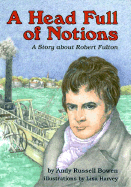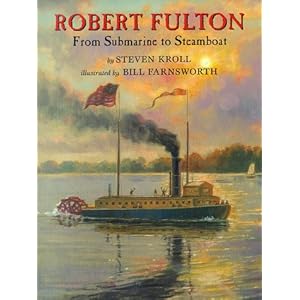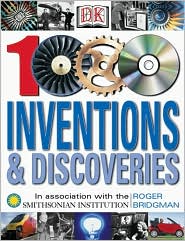General:
Usborne Ancient World, Fiona Chandler
Use Mark-It Map of Ancient Civilizations all year
Various Mesopotamian Kingdoms:
To ride the Gods’ Own Stallion, Diane Lee Wilson – Assyria (Nineveh), 640 BC
Nebuchadnezzar, Scourge of Zion, Mark Healy – Babylonia, after 630 to 562 BC
Science in Ancient Mesopotamia, Carol Moss – general for the area – covers the period from about 5000 BC to about 300 BC
From Eyewitness Bible Lands: pages 48-49 “The Assyrians” 2000 BC – 722 BC
Pages 50-51 “The Babylonians” 2000 BC – 700 BC
Pages 52-53 “The Persians” 2000 BC to 539 BC
The Mediterranean:
Mysterious Places: The Mediterranean, Philip Wilkinson and Jacqueline Dineen:
Tarxien, Malta 3600-2500 BC
Knossos, Crete 2000-1450 BC
Mycenae, Greece 650 BC – 150 AD
Delphi, Greece 650 BC – 150 AD
Epidaurus, Greece 320 BC – 150 AD
Rhodes, Greece 280 – 226 BC
Leptis Magna, Libya 46 BC – 211 AD
Hagia Sophia, Istanbul, Turkey 360-537 AD (probably do with Medieval…)
The First Europeans, Renzo Rossi and Andrea Due’
“Mediterranean Voyagers” – 1101-474 BC
“The Carthaginians” – 600’s-400’s BC
Egypt:
DK Amazing Pop-up, Pull-out Mummy Book, David Hawcock -
1300’s BC - Tutankhamun
Ancient Egypt: Life, Myth, and Art, Joann Fletcher - 3100-1285 BC
Eyewitness Ancient Egypt, George Hart 3000 BC – 324 AD – general
From Eyewitness Bible Lands, pages 12-13 “Egypt” - 1550-1166 BC
Great Books not on our reading list: Egyptian Book of the Dead – 1200’s BC – Library and online source:
India:
Great Books not on our reading list:
The Rig-Veda – 1300’s BC – Library
The Bhagavad Gita – 500’s BC - Library
Buddhist Scriptures – 200’s AD
China:
Great Books not on our reading list:
Confucius: Analects – 500’s BC – Library
Lou Tzu: Tao Te Ching – 500’s BC – Library
Sun Tzu: The Art of War – 500’s BC - Library
The Holy Land:
Eyewitness Bible Lands - 10,000 BC through modern – general
Herod the Great, Robert Green – 134 BC – 6 AD
Masada, Neil Waldman – story: 66-194 AD; discovery: 1838-1963
The Story of Masada, Yigael Yadin – same as above
The Holy Land, Peter Connolly – Herod through the fall of Masada
Our Young Folks’ Josephus: Antiquities of the Jews; The Jewish Wars, William Shepard w/ CD – 2078 BC through 70 AD
The Temple at Jerusalem, From Solomon to Herod, and Beyond, Jacqueline Morley and John James – 2000 BC to modern
Joshua, Conqueror of Canaan, Mark Healy – 2134-1186 BC
King David, Warlord of Israel, Mark Healy – 1020-960 BC
General:
DK Great Wonders of the World, Russell Ash – 2551 to modern – may do each featured work with its civilization or do all together:
Great Pyramid
Zeus at Olympia
Mausoleum at Halicarnassus
Hanging Gardens of Babylon
The Colossus of Rhodes
The Pharos at Alexandria
The Temple of Artemis at Ephesus
Wonders of Worship: Wailing Wall; Shwe Dagon Pagoda? Meenakshi Temple?
More Ancient Wonders: Pompeii; The Acropolis; Stonehenge; The Great Wall
Wonders of Engineering: Pont du Gard
The Wonder of Seven
Seven Wonders Worksheets
Greece:
The First Europeans, Renzo Rossi and Andrea Due’ – 1500-600 BC
The Ancient Greece of Odysseus, Peter Connolly – 1400-1100 BC
The Parthenon, How it was Built and how it was Used, Peter Chrisp – 1000 BC to modern
VHS: Philosophy and Government: the World in Greek Times – 25 minutes, with study guide 399 – 192 BC
VHS: Daily Life in the Ancient World: Classical Greece – 35 minutes
DK Alexander the Great, Legend of a Warrior King, Peter Chrisp – main story is 356-323 BC
The Ancient World: Greece, Robert Hull
Chapter 2: Cretes, Minoans, Mycenaeans – 40,000-800 BC
Greeks: 776-31 BC
Greece activity book
Great Books not on our reading list:
Aesop: Fables – 600’s BC
Apollonius: Jason and the Argonauts – 200’s BC
Julius Caesar: Gallic Wars – 100’s BC
Livius: War with Hannibal – 100’s BC
Books that might fit with science studies for the year:
Euclid: The Elements – 300’s BC
Archimedes: The Works- 200’s BC
Ptolemy: The Almagest – 100’s BC
Rome:
The First Europeans, Renzo Rossi and Andrea Due’
Italy and the Tyrrhenian Islands; Etruscans; Rise of Rome
DK Revealed: Ancient Rome, Peter Chrisp – 300 BC to 284 AD
Rome in Spectacular Cross-Section, Stephen Biesty – 128 AD
Hannibal, Robert Green – 264-146 BC
The Colosseum, how it was Built and how it was Used, Peter Chrisp – 73 BC to modern
The Legionary, Peter Connolly – 150 BC – 150 AD
The Cavalryman, Peter Connolly – 101-117 AD
The Roman Fort, Peter Connolly – 43-117 AD
The Usborne Internet-Linked Encyclopedia of the Roman World, Fiona Chandler, et al – 1000 BC – 476 AD
Eyewitness Ancient Rome – 753 BC – 410 AD
Pompeii, Peter Connolly – 59-79 AD
The Ancient World: Rome, Sean Sheehan and Pat Levy – 753 BC – 476 AD
Famous Men of Rome, Greenleaf, w/ guide – 753 BC – 476 AD
Rome: A Fold-out History of the Ancient Civilization, Leigh Grant -
Rome Activity guide
Great Books not on our reading list:
Juvenal: The Sixteen Satires – 100’s AD
Marcus Aurelius: Meditations – 100’s AD
Great Books that might fit with science reading:
Galen: On the Natural Faculties – 100’s AD
Loose maps related to the Roman world and the spread of Christianity.
Other European Groups:
The First Europeans, Renzo Rossi and Andrea Due’:
Central Europe in the Bronze and Iron Ages
Nordic Europe in the Bronze Age
The British Isles
The Iberians
The Scythians
Hadrian’s Wall Jackdaw



























